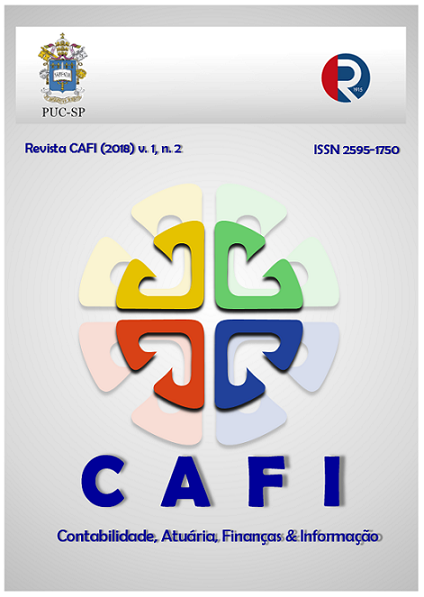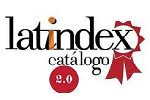The Implementation of BEPS in Brazil: Achievements and Challenges
DOI:
https://doi.org/10.23925/cafi.v1i2.41301Abstract
In October 2015, the OECD approved the BEPS comprising 15 different actions in international taxation, seeking to combat the erosion of the tax base and the transfer of taxable profits. However, almost three years have elapsed, and there is still a long way for us to have an uniform and universal taxation instrument. In this article, after the exposition of the main foundations of the BEPS package, the effects of its proposed actions will be reviewed, particularly the impacts caused in the Brazilian tax system. Methodologically, through the analysis of the recent modifications in Brazilian tax legislation, it will be reviewed the main achievements in this theme. The OECD strategy has been reinforcing the fight against aggressive tax planning, and has sought to promote this through multilateral instruments, which offer a new standard of international taxation. However, the differentiated treatment of some countries, where Brazil is included, has fueled a fragmentation of the BEPS that can create opportunities for other types of international tax planning, compromising the effectiveness of the BEPS.References
ALEXANDRE, Ricardo. Direito Tributário Esquematizado. 10ª Edição. Rio de Janeiro: Forense, 2016.
BRASIL. Convênio ICMS 106, de 29 de setembro de 2017. Disponível em: https://www.confaz.fazenda.gov.br/legislacao/convenios/2017/CV106_17. Acesso em: 23 de mai. 2018.
BRASIL. Emenda Constitucional nº 87, de 16 de abril de 2015. Disponível em: http://www.planalto.gov.br/ccivil_03/constituicao/emendas/emc/emc87.htm. Acesso em: 23 de mai. 2018.
BRASIL. Lei Complementar nº 104, de 10 de janeiro de 2001. Disponível em: http://www.planalto.gov.br/ccivil_03/Leis/LCP/Lcp104.htm. Acesso em: 16 de mai. 2018.
BRASIL. Lei Complementar nº 157, de 29 de dezembro de 2016. Disponível em: http://www.planalto.gov.br/ccivil_03/leis/LCP/Lcp157.htm#art3. Acesso em: 23 de mai. 2018.
BRASIL. Lei nº 12.973, de 13 de maio de 2014. Disponível em: http://www.planalto.gov.br/ccivil_03/_ato2011-2014/2014/lei/l12973.htm. Acesso em: 16 de mai. 2018.
BRASIL. Lei nº 9.430, de 27 de dezembro de 1996. Disponível em: http://www.planalto.gov.br/ccivil_03/Leis/L9430.htm. Acesso em: 16 de mai. 2018.
BRASIL. Ministério Da Fazenda. Portaria MF nº 343, de 09 de junho de 2015. Disponível em
:http://idg.carf.fazenda.gov.br/acesso-a-informacao/institucional/regimento-interno/reg- outros/regimento-interno-do-carf-portaria-mf-343-09062015.pdf. Acesso em: 21 de mai. 2018.
BRASIL. Receita Federal do Brasil, Instrução Normativa nº 1.154, de 12 de maio de 2011. Disponível em:
http://normas.receita.fazenda.gov.br/sijut2consulta/link.action?visao=anotado&idAto=16126
. Acesso em: 16 de mai. 2018.
BRASIL. Receita Federal do Brasil, Instrução Normativa nº 1.312, de 28 de dezembro de 2012. Disponível em: http://normas.receita.fazenda.gov.br/sijut2consulta/link.action?visao=anotado&idAto=39257
. Acesso em: 16 de mai. 2018.
BRASIL. Receita Federal do Brasil, Instrução Normativa nº 1.669, de 09 de novembro de 2016. Disponível em: http://normas.receita.fazenda.gov.br/sijut2consulta/link.action?visao=anotado&idAto=78559
. Acesso em: 23 de mai. 2018.
BRASIL. Receita Federal do Brasil, Instrução Normativa nº 1.681, de 28 de dezembro de 2016. Disponível em: http://normas.receita.fazenda.gov.br/sijut2consulta/link.action?idAto=79444&visao=anotado
. Acesso em: 23 de mai. 2018.
BRASIL. Receita Federal do Brasil, Instrução Normativa nº 1.689, de 20 de fevereiro de 2017. Disponível em:
http://normas.receita.fazenda.gov.br/sijut2consulta/link.action?idAto=80650&visao=anotado
. Acesso em: 23 de mai. 2018.
BRASIL. Receita Federal do Brasil. Brasil ratifica a Convenção Multilateral e terá amplo acesso a informações tributárias do exterior. Disponível em: http://idg.receita.fazenda.gov.br/noticias/ascom/2016/junho/brasil-ratifica-a-convencao- multilateral-e-tera-amplo-acesso-a-informacoes-tributarias-do-exterior. Acesso em: 23 de mai. 2018.
BRASIL. Receita Federal do Brasil. Nota sobre a Medida Provisória nº 685. Disponível em: http://idg.receita.fazenda.gov.br/noticias/ascom/2015/novembro/nota-sobre-a-medida- provisoria-no-685-1. Acesso em: 23 de mai. 2018.
CHRISTIANS, Alisson. BEPS and the New International Tax Order. Brigham Young
.University Law Review, 2016(6), 1603-1647. 2016.
FABRETTI, Láudio Camargo. Contabilidade Tributária. São Paulo: Atlas, 2017.
FERRARI, Bruna Camargo. Negócios híbridos e normas CFC: impactos para as multinacionais brasileiras da incorporação do projeto BEPS no direito brasileiro. 2016. Tese de Doutorado.
IUDÍCIBUS, Sérgio de et al. Manual de contabilidade societária. 3º Ed. São Paulo: Atlas, 2018.
KADET, Jeffery. BEPS-A Primer on Where It Came from and Where It’s Going. Tax Notes, Vol. 150, nº. 7. 2016.
OECD. Base erosion and profit shifting. Disponível em: http://www.oecd.org/tax/beps/. Acesso em: 16 de mai. 2018.
OLIVEIRA, Luís Martins de; CHIEREGATO, Renato. PEREZ JUNIOR; José Hernandez; GOMES, Marliete Bezerra. Manual de contabilidade tributária. São Paulo: Atlas, 2015.
PÊGAS, Paulo Henrique. Manual de contabilidade tributária. 9° ed., São Paulo, Atlas, 2017.
SPENCER, David E. BEPS imposes new reality for companies. International Financial Law Review, 19. 2018.
Downloads
Published
How to Cite
Issue
Section
License
Copyright (c) 2019 CAFI - Contabilidade, Atuária, Finanças & Informação

This work is licensed under a Creative Commons Attribution 4.0 International License.
Declaração de Direito Autoral
Autores mantém os direitos autorais e concedem à revista o direito de primeira publicação, com o trabalho simultaneamente licenciado sob a Licença Creative Commons Attribution que permite o compartilhamento do trabalho com reconhecimento da autoria e publicação inicial nesta revista.
Declaração de Privacidade
Os nomes e endereços informados nesta revista serão usados exclusivamente para os serviços prestados por esta publicação, não sendo disponibilizados para outras finalidades ou a terceiros.









